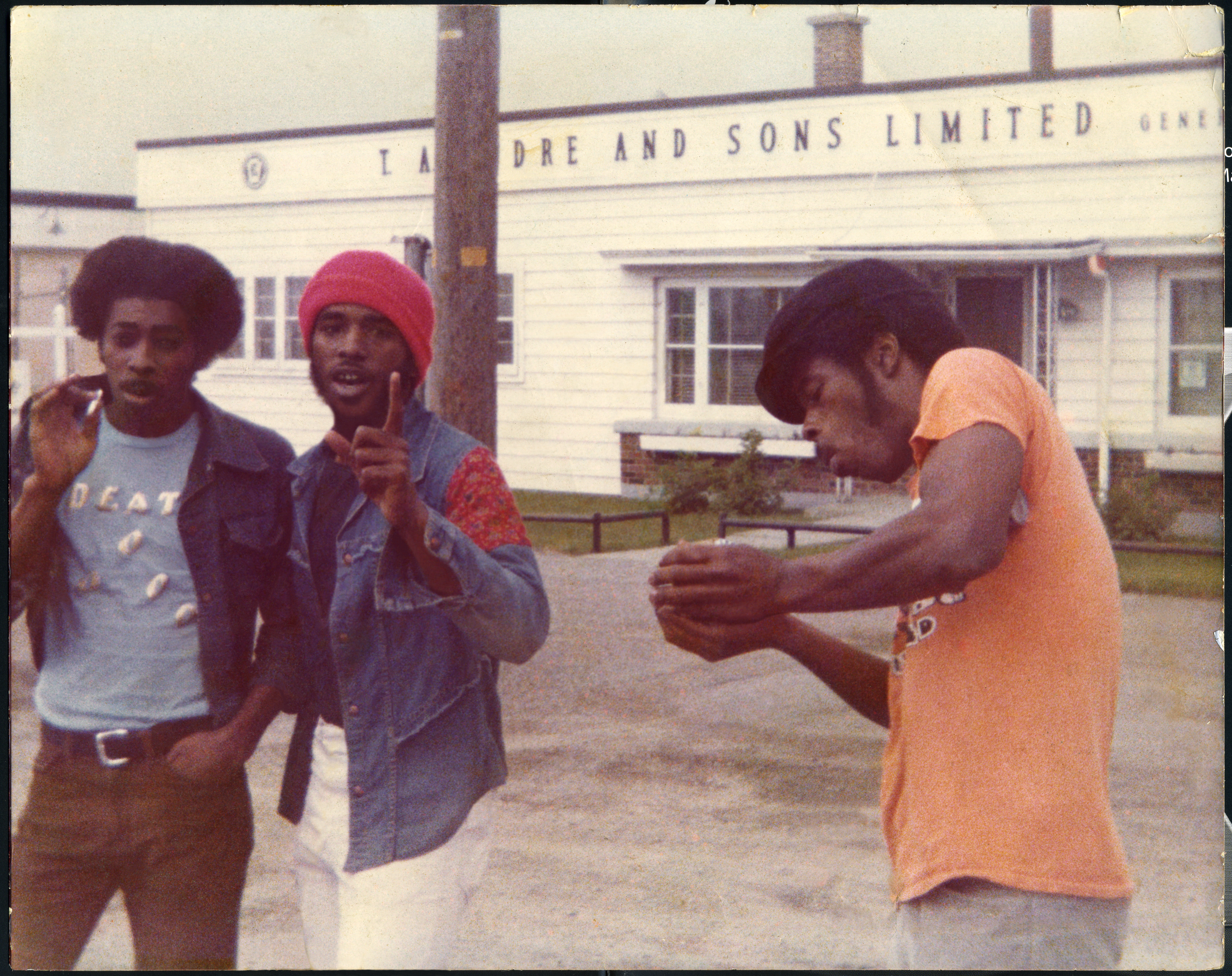A Band Called Death
Runs Fri., June 28–Thurs., July 11 at SIFF Cinema Uptown. Not rated. 98 minutes.
Thirty-seven record-store clerks feared dead in Yo La Tengo concert disaster. I’m quoting The Onion’s famous fake headline, of course, and that’s not what happens in this doc about three forgotten Detroit punk-rockers of the early ’70s. Yet it’s a no less vinyl-centric tribute to an even more obscure band. Death was founded by African-American brothers David, Bobby, and Dannis Hackney. The Detroit trio recorded and pressed one 1976 single on spec; no label would sign them; and the 45 was relegated to used-record bins for more than three decades—coveted only by obsessive collectors of vintage wax (far too many of whom are interviewed here). Then came Mike Rubin’s 2009 story in The New York Times, and Death was miraculously revived from the dead.
Vermont directors Jeff Howlett and Mark Covino were astonished to find that the surviving Hackney brothers, Bobby and Dannis, had been fronting a popular Burlington reggae/jam band for years. More incredible still, the next generation of Hackney kids were themselves musicians with no idea of their elders’ rock roots. (“Dad, why didn’t you tell me?!?”, one son explodes.) A Band Called Death is the irresistible, poignant tale of how the Hackneys finally got their due: three black kids who predated the MC5, the Stooges, and the Bad Brains; a band now praised by Jack White, Kid Rock (“How did I not know about this? This is bad-ass!”), and Henry Rollins. You might not want to hear their songs over and over again, unlike the easy FM melodies of Searching for Sugar Man, but their tale is no less genuine and affecting.
Rotoscoped old stills mix with new interviews; geeky white record collectors share their passion for Death; but it is the Hackneys who deservedly dominate the show. David emerges as the group’s Brian Wilson: a troubled, kooky spiritualist who declared “The ultimate trip is death” following their father’s fatal encounter with a drunk driver. While Bobby and Dannis moved on with music and family, the alcoholic David proved less resilient. His life began and ended with Death. Giving the group’s archive to Bobby, recently reissued by Drag City Records, he insisted “The world’s gonna come looking for it one day.” How right he was. And how sweet is his vindication.
bmiller@seattleweekly.com








